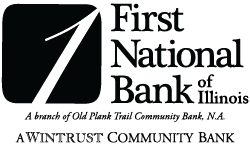Data tokens on this page
How To Recession-proof Your Business
How To Recession-proof Your Business
As a business owner, one way to ease the impact of recessions is to think of them a lot like you would taxes. Although you may dread both taxes and recessions, the time will come when you must plan for both. Recessions are a normal part of the business cycle. And just like your annual bill to Uncle Sam, with the right planning and strategy for recessions, you can learn to navigate the difficulties.
Recessions are a concern on the mind of many business owners. The good news is that you can prepare your business for tough times. And by prepping for a recession, you can strengthen your business’s position, both in the case a recession doesn’t hit or for when a recession ends. Because while a recession may occur, it will also eventually come to an end.
Read on to learn some proactive tips for strengthening your business against a recession.
Improve working capital
Like with personal finances, businesses should also embrace the practice of an emergency fund. In particular, when preparing for a recession, the notion of having more cash on hand can serve you well.
But for your business, it depends much more upon the process of how your products move from investment, assembly line, to eventual sale and cash in hand. Improving that process, known as working capital management, can allow you to have more cash in hand faster, which could prove vital when the economy struggles. Why? By doing so, you have less money invested in products that can suffer declines if suddenly the economic winds change.
Having more cash-in-hand offers additional advantages, like having more cash available to repay loans. The difficult part of a recession is that sales may struggle, but the loans and fixed bills remain. And in times when interest rates rise, the loan payments could very well outpace the rate of your sales. Having additional working capital at your disposal protects you from such bills.
Find affordable funding
If interest rates rise, finding strong resources for initial investments will become that much more important. But, as a recession hits, the ability to find a lender with good terms can become more difficult. For small businesses, this can create a double-edged sword, since they need money, but the only money they can find is more expensive. This dynamic worsens if the federal interest rate is heightened.
The more you plan now, however, the better off your business can manage the potential of cash crunches. By looking at Small Business Administration loans or other small business loan offerings to help with expansion or new lines of businesses now, it can ensure you do not have to do so under the pressure of also protecting your company. Doing so can provide you with cash to invest, as well as offer additional resources to protect if demand suddenly declines.
You can also increase the number of business lines you operate with such funds, providing some diversification if the recession were to be particularly damaging to one segment of your company.
Finding it now, as opposed to when a recession hits, gives you a leg up since the competition for a smaller pool of funds for loans will rise during a downturn.
Reduce expensive debt
Part of finding affordable funding now can also include reducing the high costs of debt that your business currently carries. This debt, with interest rates rising and a threat of a recession, becomes ever more concerning since it will continue to grow while your company struggles, especially if this debt has an adjustable rate. Planning to reduce it now will protect you when sales slow.
Carrying credit card debt or a high-cost loan can pose a risk if your business’s purse strings tighten. If you can pay off the debt, do so. If not, look to reduce the risk by refinancing or taking out an additional loan — with better terms — to manage your operational costs the current debt covers.
Tackling expensive debt now will improve your cash flow when demand becomes choppier.
Collaborate with others
The better your relationship with your partners and suppliers, the more flexibility you will have to reduce costs or improve service during a downturn. It’s a good time to look at contracts with partners and suppliers, to see whether there’s a chance to renegotiate terms or alter the process.
Maybe the partner will reduce the cost of the service if you pay them faster. If you have a strong working capital management process, it’s possible that you can achieve this. Then the partner and you both enjoy a benefit that can serve the businesses well when money becomes tighter. Or maybe the partner can increase supply, reducing the cost of the per unit item. If the product isn’t degradable and you have room for storage, then this can improve costs long term as well.
Building a business that’s robust to a recession involves forward thinking and a smart strategy. Whether a recession comes eventually or not, preplanning can ensure your company rides out any difficult times.
Bank with a partner your business can depend on, no matter the economic circumstances. Start your relationship today and see all we have to offer.





